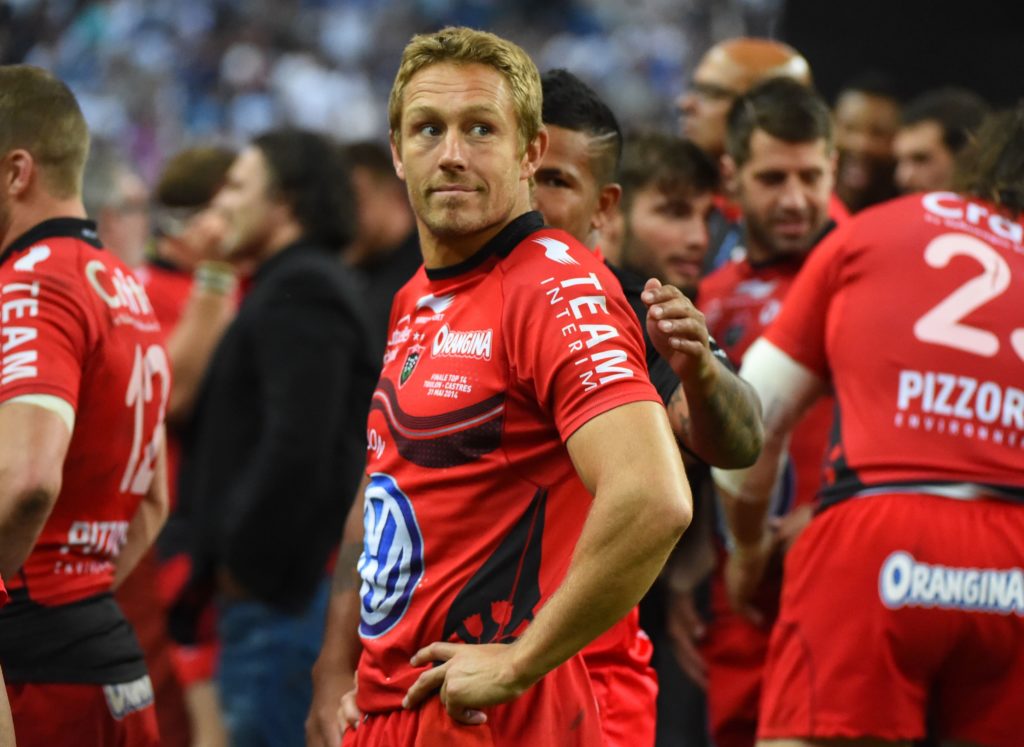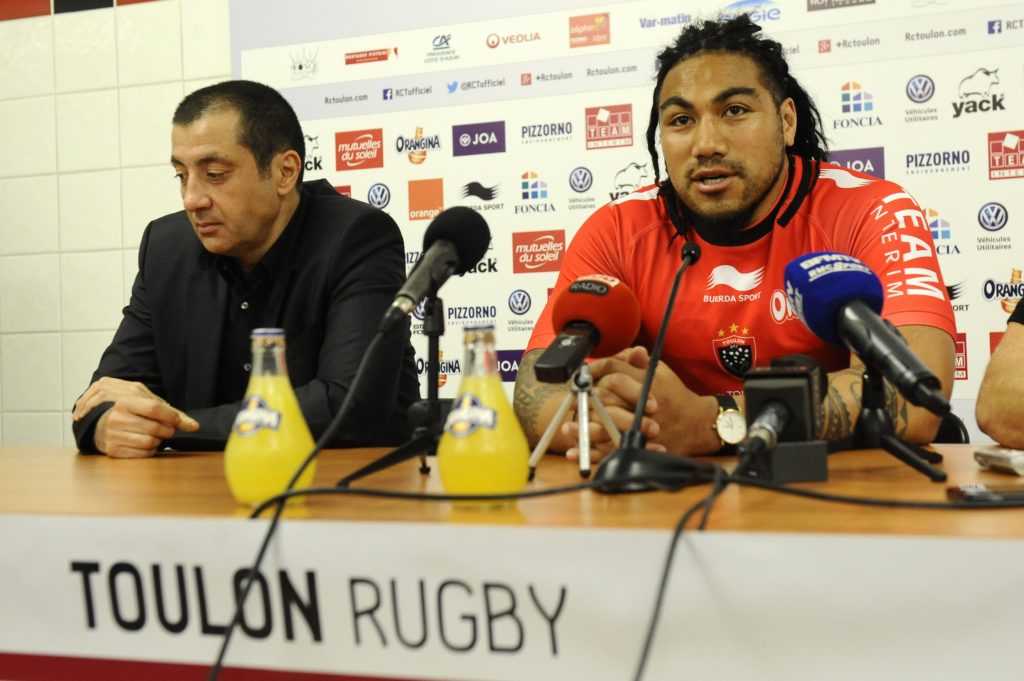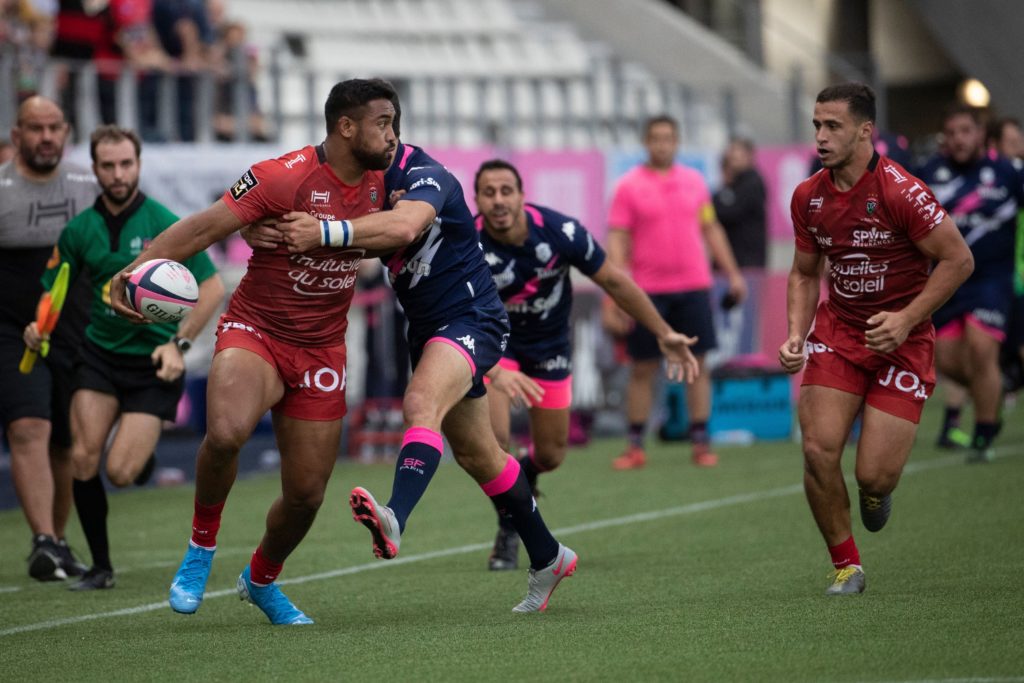Ten years ago this month, Toulon began their ascent to the top of European rugby. They reached the finals of the Top 14 and the Challenge Cup in 2011-12, losing both, but learning lessons that would prove invaluable in the years that followed.
In 2013, Toulon won the Champions Cup, the first of three consecutive titles, a feat that remains unprecedented in the tournament’s history. The club from the Côte d’Azur also lifted the Top 14 title in 2014 in what was the final act in the stellar career of Jonny Wilkinson.
The English fly-half arrived at Toulon in 2009 and left five years later a god in the eyes of the locals. I lived on the Mediterranean coast for five years and I can say with authority (and affection) that there is a more relaxed attitude to life in that part of the world. So when Wilkinson pitched up at Toulon, it was something of a shock to their system. They had never seen a player with his work ethic or his pursuit of perfection.
He became an adopted son. He wasn’t the only member of that Toulon squad to be welcomed into the family. Joe van Niekerk, Matt Giteau, Bakkies Botha, Carl Hayman, Drew Mitchell, Juan Smith, Steffon Armitage, Juan Martín Fernández Lobbe, Chris Masoe and Andrew Sheridan were all embraced to the Toulon bosom.
They were their own men, first and foremost. Strong characters of independent mind. Hayman and Armitage spent the summer of 2015 climbing Mont Blanc and Botha combined his rugby with an organic meat production company; Giteau and Mitchell entertained their followers on social media with all manner of high jinks, including the latter breaking the world record for running 100metres in clogs. Van Nierkerk now runs a spiritual retreat in Costa Rica and Sheridan works in the wine industry in France.

The Toulon squad that took shape a decade ago were all around the same age, born in the last year of the 1970s or the start of the ’80s; they’d played their teenage rugby therefore in the amateur era and expected to combine their passion with a ‘proper job’. Wilkinson, for example, was awarded a place at Durham University but instead turned professional in 1997, two years after rugby ceased to be amateur.
The late 1990s was an extraordinary period in rugby union. You had to have lived through it to appreciate how crazy. Clubs got rich and then went bust – like Bedford and Richmond – and players found themselves earning lot of money. But coaching didn’t turn pro overnight, and nor did facilities or philosophies. They were still distinctly amateur.
So young players such as Wilkinson, Hayman and Van Nierkerk learnt from a young age to stand on their own two feet. They weren’t molly-coddled and pampered, or protected and controlled, and nor did they have to contend with the tyranny of social media. So they matured into well-rounded young men who savoured their good fortune in being the first generation of rugby stars to earn a good living playing the sport they loved.
What is the relevance of this rose-tinted reflection? Because it is fundamental to understanding the reason for the dominance of Toulon in the 2010s and it’s also integral in explaining the sad decline of the club in recent seasons.
The president, Bernard Lemaître, denied a report that he had squared up to coach Patrice Collazo during the half-time team talk against Castres in June, although he admitted he had entered the dressing room.
Who would have imagined when Toulon beat Clermont in 2015 to win their third European title on the bounce that it would be the last silverware for, well, six years and counting. Last season they finished eighth in the Top 14, thereby failing to qualify for next season’s Champions Cup, and there were rumours in the French press of tension off the pitch.
The president, Bernard Lemaître, denied a report that he had squared up to coach Patrice Collazo during the half-time team talk against Castres in June, although he admitted he had entered the dressing room.
Then, in July, Midi Olympique, the rugby newspaper with impeccable sources, claimed that Lemaître is looking to offload Toulon 18 months after he assumed control from Mourad Boudjellal. Midi alleged that Lemaître had gone so far as to broach the subject with Lucien Simon, vice-president of the Ligue Nationale de Rugby [LNR], the governing body of the Top 14.
Who could blame Lemaître if he does want to sell? The man who made his fortune in the pharmaceutical industry became the majority shareholder of Toulon in December 2019 and Boudjellal gave up his remaining interests in the club in February 2020, a month before Coronavirus convulsed the world. French rugby stadiums have been closed to the public ever since (save for a few weeks at the start of last season) and every club are feeling the financial pinch. Not that Lemaître has received any sympathy from Boudjellal, who remains bitter at the way he was eased out of Toulon 14 years after he became president.

In an interview this week he said he “regretted” selling the club to the person he did, a person Boudjellal described as “manipulative” and “narcissistic”. He added that “one should have respect for the past and he doesn’t” and reminded Lemaître that it was he, Mourad, who made Toulon the club they are or, at least, were.
Boudjellal’s trouble is his ego is as big as his bank balance and while his millions bankrolled the club for many years, the one thing he could never buy was intimate rugby knowledge. So while he built an empire, he also destroyed it through his ignorance.
He worshipped Wilkinson, for example, calling him the “greatest” on his retirement, because Jonny dropped his goals and kicked his penalties, plain as day. He neither saw nor understood the graft put in by the forwards, players like Armitage and Hayman, who left with little acclaim. “He is a special kind of guy, in every way possible,” said Armitage of Boudjellal when he departed in 2016. “At the end of the day, he kind of made me want to hate Toulon when I was leaving by making it difficult… that was a horrible part after spending five years at the club.”
The fatal flaw of Boudjellal was to believe that his money could continue the success with the next generation of world stars. So he splashed the cash with little restraint.
But, above all, Boudjellal failed to grasp what made the Toulon side of 10 years ago so successful. It was, as I wrote at the beginning, the symbiosis of a group of players who were men of talent and character, motivated primarily not by money but by self-respect. They were as committed for Toulon as they had been playing for England, the All Blacks, France, Australia and Argentina.
The fatal flaw of Boudjellal was to believe that his money could continue the success with the next generation of world stars. So he splashed the cash with little restraint, signing Ayumu Goromaru from Japan (at a reported monthly wage of €200,000), Rhys Webb from Wales, Samu Manoa from the States, JP Pietersen from South Africa, Julian Savea from New Zealand and many more. None were a success and some, such as Webb and Savea, were sent on their way with stinging rebukes from Toulon.
In defence of the players, it didn’t help that Boudjellal went through four coaches in two years – Diego Dominguez, Mike Ford, Richard Cockerill and Fabien Galthié – before appointing Collazo in the summer of 2018. Three years on and the trophy cabinet remains bare and Boudjellal’s successor Lemaître is evidently growing impatient, which is no surprise given that in that time the club’s budget has increased from €30million to €32.4m. In an interview earlier this month, Collazo intimated that he knows his future at Toulon probably hinges on whether he can deliver some silverware this season. “I understand the disappointment and the frustration,” he said. “I know that there are a lot of things to prove but we’re going to do it. We must take the supporters with us and give another image [of the club].”

During the glory years, the man in the tracksuit was Bernard Laporte, the ex-coach of France and for the last five years the president of the FFR. Laporte is a shrewd man, and when he was in charge at Toulon his was a light hand on the tiller; well, what more was there to impart to Botha, Wilko, Giteau et al with all their experience and achievements?
“In terms of rugby coaching, there wasn’t much of it… the players really coached themselves,” recalled Steve Walsh, a Lancastrian, who was strength and conditioning coach at Toulon from 2010 to 2014. “It was as much about investing time in them as people. Going for a coffee with them, sitting down for a chat. Bernard Laporte was good at that. He was a manager, not a coach, and his ‘carrot-and-stick’ approach worked. Everything was kept simple. Short, sharp training sessions and a couple of meetings a week. That was it. No video analysis of the opposition. As Bernie said, ‘We don’t need to watch any videos; if we play well, we’ll win’.”
The stadium tannoy honoured Wilkinson’s feats by playing ‘God Save the Queen’. Thousands of French voices sang along. England may still miss Jonny, but Toulon miss him more.
Ultimately, Laporte knew he could trust the players; these were proud men who would never let themselves down or the club.
The sad truth is that they don’t make them like that any more. That‘s not meant to be a slight on the modern pros, but the fact is they have been nurtured in a completely different environment to that experienced by the players who came of age in the late 1990s. Today, players are treated like children and coaches don‘t encourage initiative; they fear it.
I was privileged to be among the crowd at the Stade de France on the last day of May in 2014 when Toulon beat Castres to win the Top 14 and secure a European and domestic double. It was also the final match of Wilkinson’s career and the stadium tannoy honoured his feats by playing ‘God Save the Queen’. Thousands of French voices sang along. England may still miss Jonny, but Toulon miss him more.
More stories from Gavin Mortimer
If you’ve enjoyed this article, please share it with friends or on social media. We rely solely on new subscribers to fund high-quality journalism and appreciate you sharing this so we can continue to grow, produce more quality content and support our writers.


Comments
Join free and tell us what you really think!
Sign up for free